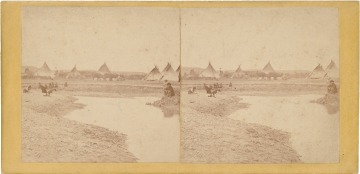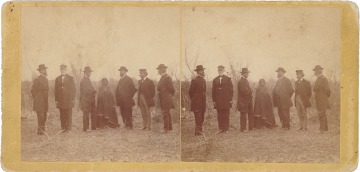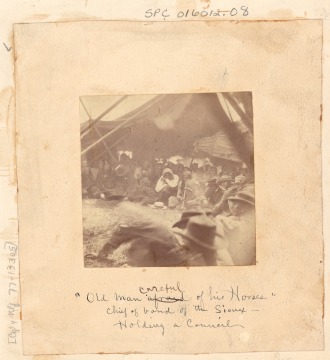1868: Fort Laramie Treaty promises to provide health care, services
A treaty signed at Fort Laramie, Wyoming, promises that the U.S. will provide a physician, teachers, carpenter, miller, engineer, farmer, and blacksmiths to the Sioux Nation, and after 10 years will reimburse the tribes for education to replace any services the government withdraws. The tribes understand that these services—for which they have prepaid by ceding land to the government—will be managed by a local Indian agent.
“The United States hereby agrees to furnish annually to the Indians the physician, teachers, carpenter, miller, engineer, farmer, and blacksmiths, as herein contemplated, and that such appropriations shall be made from time to time, on the estimate of the Secretary of the Interior, as will be sufficient to employ such persons.” —ARTICLE XIII, Fort Laramie Treaty, 1868
"At any time after ten years from the making of this treaty, the United States shall have the privilege of withdrawing the physician, farmer, blacksmith, carpenter, engineer, and miller herein provided for, but in case of such withdrawal, an additional sum thereafter of ten thousand dollars per annum shall be devoted to the education of said Indians, and the Commissioner of Indian Affairs shall, upon careful inquiry into their condition, make such rules and regulations for the expenditure of said sums as will best promote the education and moral improvement of said tribes.” —ARTICLE IX, Fort Laramie Treaty, 1868
- Theme
- Federal-Tribal Relations
- Region
- California, Great Basin, Great Plains, Northeast, Northwest Coast, Plateau, Southeast, Southwest
Most likely, members of the Lakota Nation encamp near Fort Laramie, Wyoming
Courtesy National Anthropological Archives, Smithsonian Institution
Peace commissioners, Fort Laramie, Wyoming, 1868. An unidentified Native woman is posed with the commissioners.
Courtesy National Anthropological Archives, Smithsonian Institution
Man Afraid of His Horses, an Oglala chief, smokes a ceremonial pipe at the 1868 treaty negotiations between the U.S. and the Lakota Nation at Fort Laramie, Wyoming
Courtesy National Anthropological Archives, Smithsonian Institution


